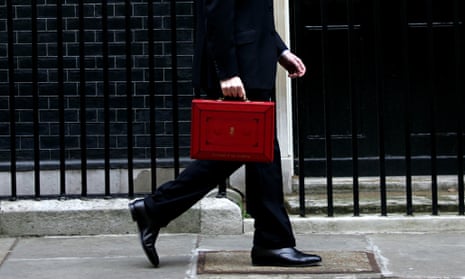In next week’s budget, attention will be sharply focused on the details of how the new government will cut its welfare budget by £12bn.
But while jobseekers and carers wait to hear specifics of how ministers will take nearly 10% off the annual benefits bill, few realise that the government has already made changes that will reduce payments to those depending on state support by many times more over this parliament.
In an apparently technical change to financial policy, announced when most people were distracted, and further complicated by a confusion of delays and exceptions, we’ve seen possibly the biggest ever raid on state support for the worst off in society.
The story begins with a single paragraph in the emergency budget a few weeks after the 2010 general election. Buried in its 100 pages was a small section stating that future benefits, tax credits and public sector pensions for retired emergency workers, civil servants, council employees and NHS staff would rise in line with a different measure of inflation: the consumer price index (CPI). Previously, the default increase was the retail price index, RPI – which has historically averaged about 1% higher.
By reducing the increase in payments each year, Treasury documents admitted the change would save them £15bn over the life of the last parliament. But in the frenzy of the time, facing down the worst recession since the Great Depression, attention was largely diverted. And nobody warned the public how the cost of this policy would keep multiplying beyond 2015.
The following year, the Treasury extended the reduced inflation rate to thresholds for income tax, national insurance contributions and inheritance tax, also introducing more exceptions and delays. This decision, more complex than the last, was even less remarked upon. The impact on so many people in the UK, though, was significant.
Take jobseeker’s allowance for a single person of 25 or older, which is currently £73.10 a week. Robert Joyce at the Institute of Fiscal Studies calculates that if index-linking remained at the old rate, it would have risen to £87.75 by the end of this parliament. But under the new policy the weekly payment will rise by slightly less each year. By the next election in 2020, the cumulative effect will be a weekly payment of £80.70 – or £366 a year lower, says Joyce.
The same is true of almost every one of the benefits and tax credits, and for millions claiming pensions for public service (for whom the triple-locked state pension does not apply).
There are no official calculations of the combined impact of these changes. But using the Office for Budget Responsibility’s (OBR’s) most up-to-date estimates the inflation switch will save the Treasury more than £40bn over this parliament.
Exacerbating the effect of this, Office for National Statistics (ONS) research suggests that prices rise notably more quickly than the average for the lowest-spending households, who are most likely to suffer these “inflation cuts”.
As well as the sleight of hand, however, there is an outright cynical element to this policy: because the price of many goods – as well as gas, electricity and water bills, train and bus fares – continues to rise in line with the higher RPI. The government itself continues to use it to raise income from taxes on tobacco, alcohol, gaming and more esoteric duties like landfill. It admits the discrepancy, but justifies it on the grounds of public finances.
Crudely, if these charges on beer, wine, spirits, cigarettes and so on rose by CPI, ie a percentage point less each year, they would have collected £4bn less by the end of the last parliament, and £10bn less by the end of this decade.
The government has also created purely political exceptions for the elderly and businesses – overtly acknowledging it wants to ensure they “do not lose out”.
Perhaps the best proof of the severe impact of this policy is the OBR’s own warning that unless the policy is reversed after 2020 “the value of the benefits would fall dramatically, relative to the living standards of the rest of the population”. And let’s not forget, this is before the upcoming £12bn cuts.
The Conservative-LibDem coalition in 2010 justified the cash-grab by arguing that RPI exaggerates price increases, so benefits and pensions were rising faster than the cost of living. But the ONS calculates that six in every 10 people on benefits pay mortgages, even before the doubts of statistics experts are voiced.
Nearly a century ago John Maynard Keynes warned: “By a continuing process of inflation, governments can confiscate, secretly and unobserved, an important part of the wealth of their citizens.” When the chancellor finally reveals next Wednesday how he will cut £12bn from welfare, remember that’s just the part he is admitting to in public.
